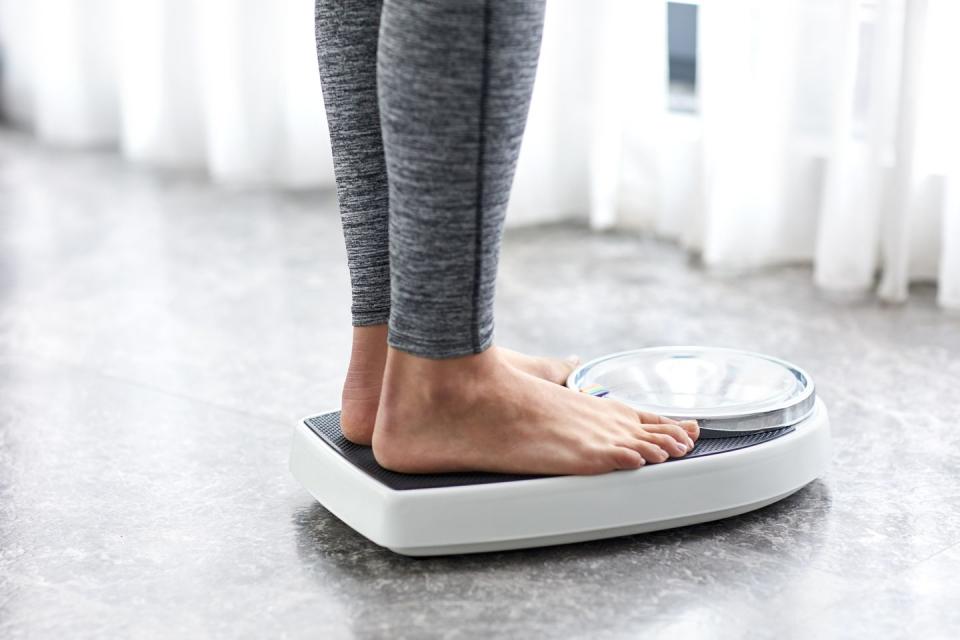6 Tips to Help You Manage COPD

Finding out that you have a health condition with no cure is overwhelming. It’s also the hard reality for more than 16 million Americans with chronic obstructive pulmonary disease (COPD), a condition marked by coughing, shortness of breath, and chest tightness.
Fortunately, there are effective treatments, medications, and lifestyle modifications that can help you manage the disease, and feel your best. We’ve gathered six helpful tips below from doctors who specialize in the condition.
1. Consider pulmonary rehab.
This kind of rehab involves classes that teach you tips and exercises to improve your breathing and help you manage your disease. Not everyone with COPD needs it, though. Sometimes simply exercising on your own—which improves oxygen delivery to your muscles, helping you breathe more easily—can lessen symptoms like shortness of breath, says Norman Edelman, M.D., a pulmonologist and professor of internal medicine at Stony Brook University. Ask your doctor what might work best best for you.
2. (Re)learn how to breathe.

You can practice right now. Sit comfortably with your knees bent and shoulders, head, and neck relaxed, says Dr. Ferguson. Place one hand on your upper chest and the other below your rib cage, so that you can feel your diaphragm move. Breathe in slowly through your nose so that your stomach pushes out against your lower hand. Now, tighten your stomach muscles, contracting them in as you exhale through pursed lips. The hand on your upper chest should remain still the entire time.
Aim to repeat this in five- to 10-minute increments a few times a day, Dr. Ferguson suggests. The exercise strengthens your diaphragm, the large, flat muscle at the base of your lungs, which helps you breathe more efficiently and with less effort than taking short, shallow breaths (how most people breathe).
3. Quit smoking.
Being a smoker doesn’t just increase your risk of COPD (about 75 percent of people who have COPD smoke or once smoked), it also impacts how your body responds to treatment. “The best COPD medications science has to offer will be set up to fail if a patient continues to smoke,” says Dr. Ferguson. Smoking causes inflammation and irritation in your lungs and airways and reduces lung function—all problems COPD medications try to address.
Talk to your doctor about how to quit. You have a slew of options—gum, the patch, smoking cessation programs that teach you how to curb urges to smoke—but know that people often must try several of them before they’re successful, says Dr. Edelman. What this means: If your first attempt is a bust, don't give up! You can find something that works for you.
4. Maintain a healthy weight.

Some COPD patients struggle to keep weight on. A review published in the Journal of Translational Internal Medicine found that about 25 to 40 percent of people with COPD were underweight, which could be a sign of serious disease, mental health struggles, or lung damage. On the other end of the spectrum, if you’re overweight, the extra pounds can put an additional burden on the lungs, potentially worsening your symptoms, says Dr. Edelman.
If you notice your weight ticking up or falling off unintentionally, talk to your doctor or a registered dietician. Investing in science-backed strategies can help you reach and stay at an ideal weight, and may help improve COPD symptoms, too. For example, eating good protein sources at least twice a day can help you maintain a healthy weight and strong respiratory muscles. If you need to lose weight, choose low-fat protein sources such as lean meats and low-fat dairy products. Need to gain weight? Opt for protein with a higher fat content, such as whole milk and cheese and yogurt made with whole milk.
5. Breathe clean air.
Try to stay away from air pollution as much as possible (you can use sites like AirNow to track pollutants in real time) and avoid secondhand smoke that can irritate your lungs. Long-term exposure to lung irritants, as well as chemical fumes or dusts from the environment or your workplace, are risk factors for COPD and can worsen symptoms.
6. Stay up to date on vaccinations.

You always want to protect your lungs (and overall body) from infection. But when you have COPD, it’s especially important. Complications from respiratory illnesses like the flu can be more serious for people with COPD, says Dr. Edelman. Get a flu shot every year, and check with your doctor if you need a pneumonia vaccine, which is recommended for COPD patients and those 65 and older. Not sure what vaccines or shots you might be behind on? Touch base with your doctor.
You Might Also Like

